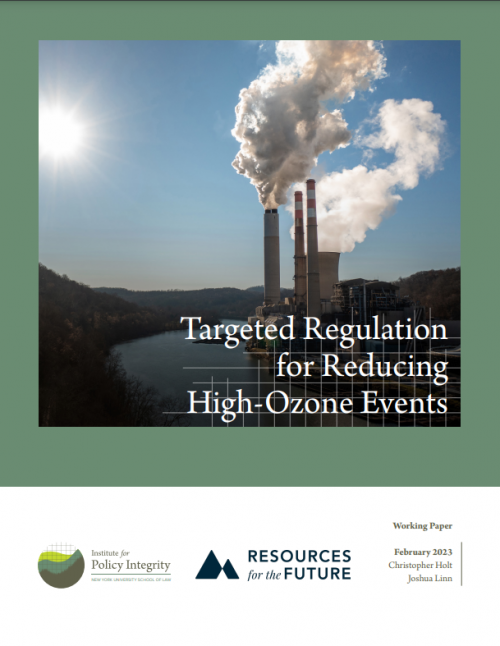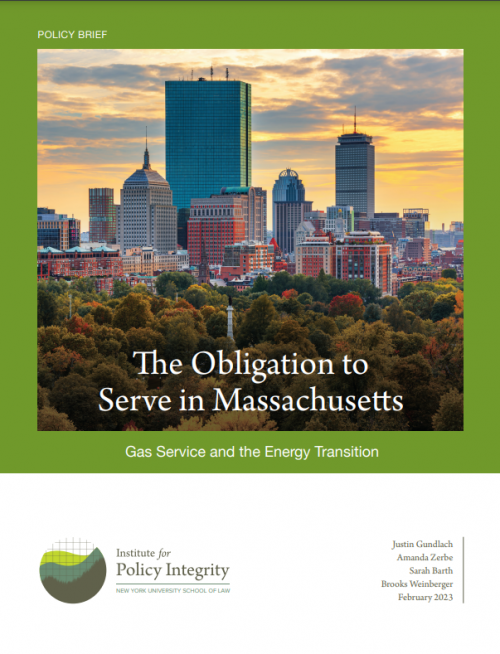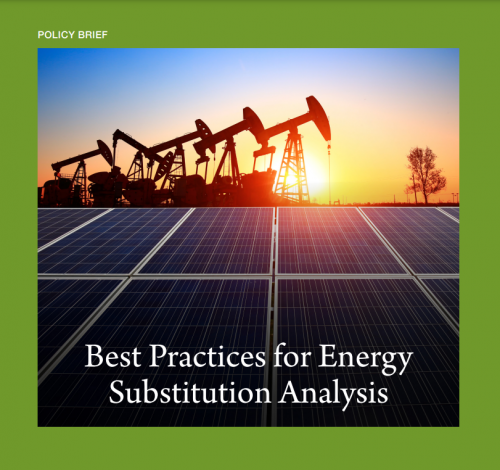-
Amicus Brief Defending NHTSA Corporate Average Fuel Economy Standards
In May 2022, the National Highway Traffic Safety Administration (NHTSA) finalized a rule to increase its corporate average fuel economy (CAFE) standards for passenger cars and light trucks for model years 2024–2026. A group of fuel and petrochemical manufacturers and states challenged the standards in the U.S. Court of Appeals for the D.C. Circuit, arguing primarily that the Energy Policy and Conservation Act bars NHTSA from including electric vehicles in the analytical baseline for the new standards. Our amicus brief explains that longstanding administrative guidance and case law direct agencies to develop baselines that reflect their best assessment of the real world absent any new agency action. In the context of this rulemaking, that guidance and case law required NHTSA to project how many and what kinds of vehicles—including electric (and plug-in hybrid electric) vehicles—would be built and sold if it did not issue new CAFE standards, which is what NHTSA did here. Our amicus brief also explains that NHTSA has consistently prepared baselines for prior CAFE standards in this manner.
-
Amicus Brief Defending EPA Tailpipe Greenhouse Gas Emission Standards
In December 2021, the Environmental Protection Agency finalized a regulation to strengthen its greenhouse gas emission standards for light-duty vehicles. Although regulated automakers support EPA’s approach, a group of states and oil-and-gas companies have challenged the standards in the U.S. Court of Appeals for the D.C. Circuit, claiming that the standards misapply economic principles and violate the major questions doctrine. In our amicus brief, we explain that EPA’s regulation is consistent with sound economics and established practice.
-

Targeted Regulation for Reducing High-Ozone Events
Working paper
Nitrogen oxides (NOx) are a precursor to ground-level ozone, a pernicious pollutant that is harmful to human health and ecosystems. Despite decades of regulations and a sharp decline in NOx emissions, episodic high-ozone events prevent many areas from attaining air quality standards. Theoretically, spatially or temporally differentiated emissions prices could be more cost effective at reducing such events than a uniform price. To test this prediction, with data from EPA and NOAA spanning 2001–2019, this working paper uses novel empirical strategies to estimate (1) the link between hourly emissions and high-ozone events and (2) hourly marginal abatement costs. These estimates form the basis for simulations that compare uniform and differentiated emissions pricing. Consistent with economic theory, differentiated pricing is substantially more cost effective at reducing high-ozone events, but this advantage depends on the accuracy of the estimated NOx–ozone relationship.
-
Comments on EPA Draft Update to Social Cost of Greenhouse Gas Metrics
Together with a coalition of environmental groups, we submitted comments to EPA on its draft update to the social cost of greenhouse gas estimates of climate damage. We commended the agency's extraordinary advances and recommended ways to further improve the accuracy of the metrics.
-
Comments on EPA’s Supplemental Proposal on Oil and Gas Sector Methane Standards
In December 2022, EPA issued a Supplemental Proposal to update, strengthen, and expand its proposed standards to regulate methane emissions from new and existing sources in the oil and natural gas sector. We submitted comments on EPA’s Supplemental Proposal and underlying Regulatory Impact Analysis (RIA) recommending that EPA strengthen its RIA to more fully capture the impacts of these standards by: (1) extending the timeframe of its analysis to quantify net benefits past 2035, (2) monetizing ozone health benefits related to methane emissions reductions, (3) better monetizing and quantifying co-benefits, and (4) better quantifying the impacts of the super-emitter response program or using a breakeven analysis if further quantification is not possible. We further recommended that EPA expand its distributional analysis of the impacts of the rule.
-

The Obligation to Serve in Massachusetts
Gas Service and the Energy Transition
In Massachusetts, achieving the state’s decarbonization target in a cost-effective manner will likely require the refusal of new gas service in addition to the termination of existing gas service in certain buildings and its replacement with electric service. The scope of utilities’ legal obligation to serve their customers will be central to those efforts. This brief analyzes the contours of this obligation by examining the relevant Massachusetts statutes, regulations, Public Utility Commission decisions, and case law.
-
Comments on NRCS Agriculture Funding Strategy
Policy Integrity submitted comments to the U.S. Department of Agriculture's Natural Resources Conservation Service (NRCS) in response to its Request for Information about how it can most effectively distribute its share of Inflation Reduction Act funding. This $19 billion in funding, which is allocated across NRCS's core conservation programs, must be given out to support agricultural practices that reduce or sequester greenhouse gas emissions. Our comments encourage NRCS to award the funding to practices that will maximize net social benefits and to increase the transparency of its project-ranking process. We urge NRCS to consider a range of factors in its analysis, including a practice's potential to reduce greenhouse gas emissions, produce knowledge, and offer ecosystem services.
-
Comment Letter Calling for Rescission of DOE Categorical Exclusion Rule for LNG Exports
In response to the Department of Energy’s recent request for information on its categorical exclusions, we submitted a comment letter recommending that the Department rescind its 2020 regulation establishing categorical exclusion B5.7 for discretionary authorizations to export liquefied natural gas. As our comment letter explains, long-term expansion of export capacity may lock in fossil-fuel usage over the long term and thereby impede global decarbonization efforts. Yet when promulgating its categorical exclusion rule, the Department erroneously argued that indirect climate effects are not relevant to its assessment of applications for export authorization, and based its sweeping categorical exclusion on that improper legal conclusion. Our comment letter provides a proper understanding of the Department’s broad authority, which compels the agency to robustly consider impacts on climate change as part of its authorization process.
-
Shaping Connecticut’s Energy Storage Strategy
Energy storage can play an important role in a transition to clean energy, but only if it’s deployed within an effective policy framework. The Connecticut Public Utility Regulatory Authority (PURA) adopted our recommendations to target its energy storage incentives to areas with the highest differential between the highest and lowest marginal emissions rates so batteries could ultimately lead to reductions in emissions. In addition, PURA directed the Connecticut Green Bank to review our comments when setting the scope of the program's marketing plan.
-

Best Practices for Energy Substitution Analysis
In recent years, numerous federal agencies have made a controversial claim: that projects locking in fossil fuels over the long term will decrease aggregate greenhouse gas emissions, or that their effects on total emissions will be limited. In many of those cases, however, agencies have reached this counter-intuitive conclusion using a flawed consideration of energy substitution. This report identifies some of the recurring problems with agency analysis of energy substitution and offers best practices to apply moving forward.
Viewing recent projects in Climate and Energy Policy






